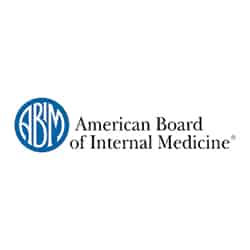A heart murmur is an extra whooshing sound your heart makes as it beats that indicates a turbulent flow of blood across a heart valve.
Our heart murmur specialists at St. Louis Heart and Vascular diagnose and treat heart murmurs, if necessary. Since not all heart murmurs are cause for concern, it’s important to have a medical expert determine if yours is serious.
To learn more, find a location near you and call the office to schedule an appointment.
Heart Murmur Treatment Q&A
What is a heart murmur?
A heart murmur is an extra sound that indicates a turbulent flow of blood over the valves in your heart. A normal heartbeat makes just two sounds: lub-dup. When a heart murmur is present, your doctor hears swishing sounds or fluttering as your valves open and close with blood flow. Some heart murmurs are classified as “innocent,” or harmless, and don’t require treatment.
However, other types of heart murmurs, called abnormal murmurs, require additional testing to determine any serious underlying heart conditions. An innocent heart murmur indicates a normal heart, but an abnormal heart murmur may indicate a valve problem or a congenital heart disease.
What causes heart murmurs?
You may be born with a heart murmur as a congenital defect, or you can develop one later in life. The causes of innocent heart murmurs include:
- Exercise
- Pregnancy
- Hyperthyroidism
- Rapid growth (as in adolescence)
- Fever
- Anemia
Abnormal heart murmurs are often caused by congenital birth defects such as holes in the heart, or heart valve abnormalities. With a hole in the heart, blood flows abnormally between the chambers of your heart. In the case of valve abnormalities, your valves either don’t allow enough blood to flow, or allow blood to leak back out as your heart is pumping.
These valve abnormalities include valve stenosis, which is the narrowing of your pathways for blood flow, and valve regurgitation, which is the backward flow of blood
Individuals with a family history of heart murmurs or defects are at a higher risk of being born with one or developing one later in life. Medical conditions like high blood pressure can also lead to defective valve conditions and heart murmurs.
How are heart murmurs diagnosed?
If they hear a heart murmur when listening to your heart through a stethoscope, your doctor at St. Louis Heart and Vascular may recommend additional testing to diagnose the specifics of your condition such as:
- A chest X-ray to see an image of your heart
- An electrocardiogram (ECG) to record electrical impulses and heart rhythms
- An echocardiogram that uses ultrasound to show detailed images of heart structure
- Cardiac catheterization to measure the pressure in your heart chambers
If you require treatment for a heart murmur or valve problem, your doctor may prescribe medications to prevent blood clots, remove excess fluids, or help lower your cholesterol. In severe cases, the doctors may need to perform surgery to repair or replace damaged or nonfunctioning valves.
If you have a heart murmur or need additional testing to determine the underlying causes of one, call the St. Louis Heart and Vascular location nearest you for an appointment.
Heart Murmur Treatment Available at These Locations
We offer Heart Murmur Treatment at the following St. Louis Heart and Vascular locations. Contact us to schedule your appointment today.
Bridgeton Office
- (314) 741-0911
- 3550 McKelvey Rd.
Bridgeton, MO 63044 - Location Info
Des Peres Hospital Office
- (314) 741-0911
- 2325 Dougherty Ferry Road, Suite 203
St. Louis, MO 63122 - Location Info
Granite City Office
- (314) 741-0911
- 2120 Madison Ave., Suite 101
Granite City, IL 62040 - Location Info
SLHV Sleep Lab
- (314) 741-0911
- 3550 McKelvey Rd.
Bridgeton, MO 63044 - Location Info
St. Charles Office
- (314) 741-0911
- 1551 Wall Street, Suite 410
St. Charles, MO 63303 - Location Info












